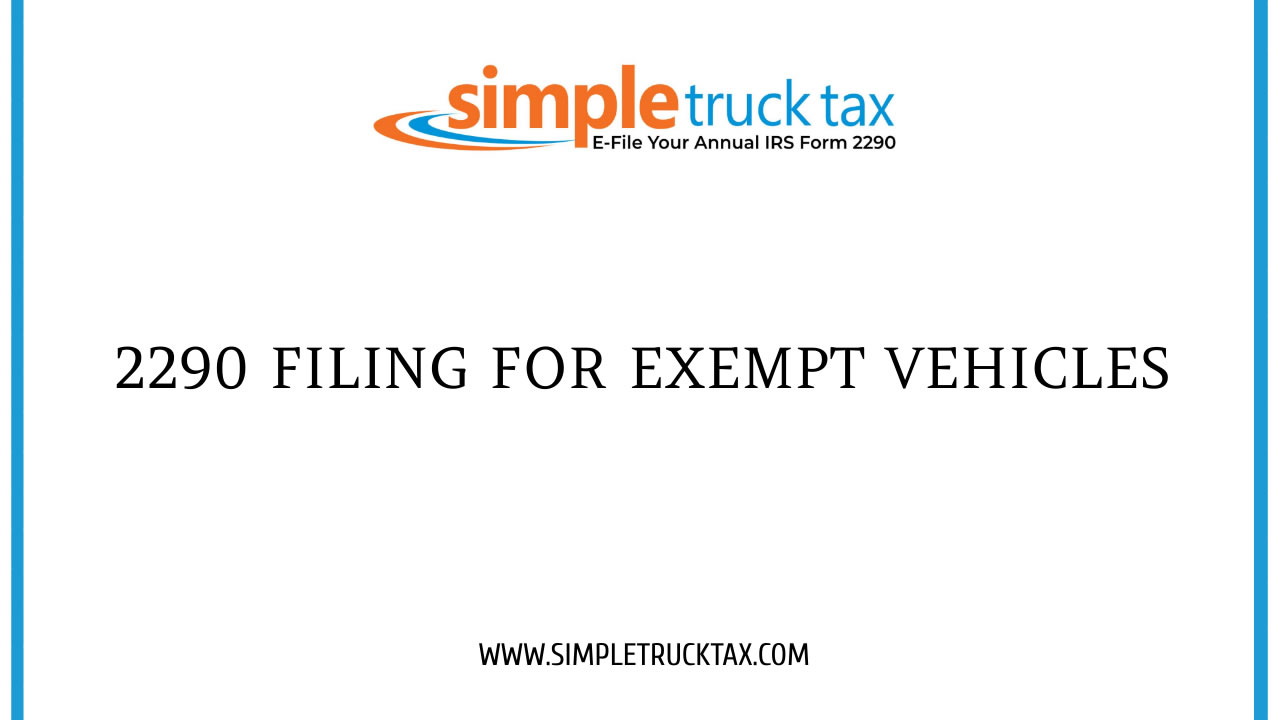
2290 Filing for Exempt Vehicles
The Heavy Highway Vehicle Use Tax Return, or Form 2290, is a prerequisite for the owners of heavy vehicles who use them on public highways; however not all vehicles are subjected to this tax. Thus, there are some vehicles that are exempted from filling out form 2290. It is important to know which cars qualify for an exemption and how these exemptions should be treated in order to comply with regulations. We will delve into the specifics of filing Form 2290 for exempt vehicles.
Exempt Vehicles: Who Qualifies?
- Government Vehicles Basically, government owned vehicles meant for official purposes are exempted from the Heavy Highway Vehicle Use Tax. These include federal, state, local governments or those used during military operations.
- Agricultural Vehicles Certain agricultural vehicles do not need a form-2290-filing-exemption because they're used only in farming activities without generating taxable mileage on public highways. Such exceptions help reduce administrative burden on agricultural business while promoting this sector’s development.
- Vehicles Used for Non-Highway Purposes All other forms of transport whether operated exclusively at industrial plants or construction sites that don’t have any relation to road traffic as well as certain off-road equipment mustn’t appear in your list at all because they weren’t designed for usage there, thus they seem to be above form 2290 filing.
- Vehicles with a Gross Weight Below the Threshold Sub-55k lbs gross weight vehicles don’t fall under the purview of Form 2290 and hence are not required to file this form. The Heavy Highway Vehicle Use Tax does not apply to these vehicles.
Filing Form 2290 for Exempt Vehicles
Step-by-Step Filing Process
- Identify Exemption Eligibility: Ensure your vehicle qualifies for one of the exemptions listed above.
- Complete Form 2290: Even if you claim an exemption, there might be some sections on Form 2290 that needs to be filled up concerning the nature of exemption your truck will be using.
- Submit Form 2290: Once completed, send it to IRS body. In case of exempt vehicles, make sure you indicate their status clearly on the tax return forms.
- Receive Proof of Exemption: After processing, an IRS stamp or equivalent confirmation will be provided as evidence that you received an exemption. This evidence must be stored securely in some place where it can easily serve as reference whenever needed.
Common Mistakes to Avoid
- Wrongly Reporting Exemption: Always ensure that an exemption is correctly indicated on your Form 2290 so as to avoid charges being imposed on you mistakenly.
- Missed Deadlines: Although having such cars exempts them from paying any taxes, however they still need to meet all deadlines set by the Internal Revenue Service. Confirm and meet all IRS deadlines to maintain compliance.
- Neglecting Record-Keeping: For possible audits or future inquiries; ensure proper record keeping regarding filing and exemption claims made here whether for yourself or a third party.
To file for exempt vehicles one must know the criteria for exemption and fill in the form correctly. To avoid tax liabilities that are unwarranted, it is important to follow right procedures when dealing with government motors, farm equipment or non-highway machinery. Consider speaking to a tax specialist for proper guidance or in complicated cases so that all rules are adhered to.
Note: For more information, visit IRS website